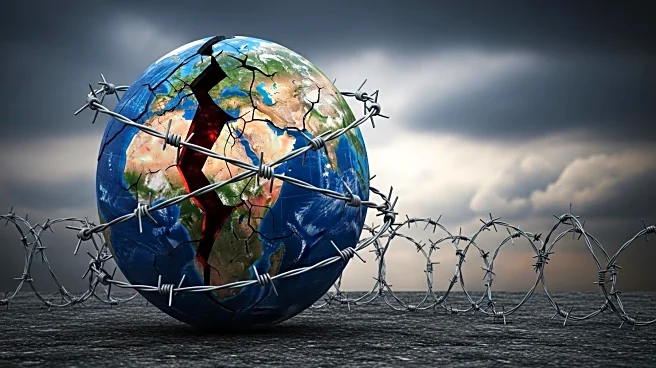What's Happening?
Iran-backed Houthi rebels have conducted raids on the offices of the United Nations' food, health, and children's agencies in Yemen's capital, Sanaa, detaining 11 U.N. employees. This action follows heightened security measures in the city after the assassination of the Houthi prime minister and several cabinet members by Israeli forces. The World Food Program and UNICEF were among the agencies targeted, with armed forces reportedly questioning employees on-site. U.N. Secretary-General António Guterres condemned the detentions and called for the immediate release of the personnel. The raids are part of a broader crackdown by the Houthis on international organizations operating in rebel-held areas, which has included the detention of numerous U.N. staffers and the suspension of U.N. operations in certain regions.
Why It's Important?
The detention of U.N. employees by the Houthis underscores the volatile situation in Yemen and the challenges faced by international organizations in conflict zones. This development could further strain relations between the Houthis and the international community, potentially impacting humanitarian aid efforts in Yemen. The incident also highlights the broader geopolitical tensions in the region, particularly in light of recent Israeli military actions against Houthi leaders. The Houthis' actions may lead to increased scrutiny and pressure from global powers, affecting diplomatic and humanitarian strategies in the Middle East.
What's Next?
The international community, particularly the United Nations, is likely to increase diplomatic efforts to secure the release of the detained employees and ensure the safety of humanitarian workers in Yemen. There may also be calls for de-escalation from U.N. officials and other stakeholders to prevent further deterioration of the situation. The Houthis' vow to continue targeting Israeli interests could lead to further military confrontations, potentially drawing in additional regional and international actors.
Beyond the Headlines
The raids and detentions raise significant ethical and legal questions about the protection of humanitarian workers in conflict zones. The situation in Yemen could set a precedent for how international organizations operate in areas controlled by non-state actors. Additionally, the ongoing conflict and external interventions may have long-term implications for regional stability and the humanitarian landscape in the Middle East.










